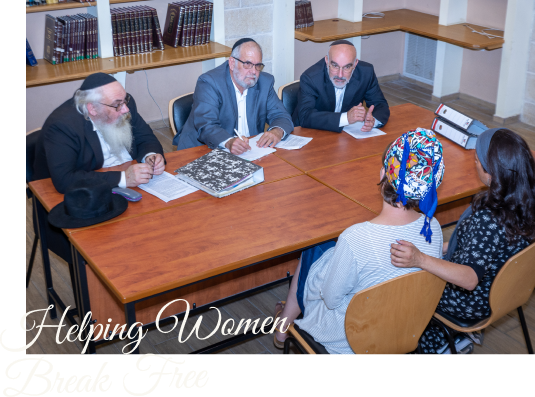
Several solutions for pre-marital agreements that will safeguard your daughter’s future have been proposed during the past few decades. You should consult your Rabbi or other trusted halakhic authority to find a prenuptial agreement suitable for you. They are extremely effective in limiting problems of gett refusal.
No one should be abused in a marriage. Unfortunately, studies have shown that it is rare that an abuser will change. The IBD opines (in accordance with decisions of renown authorities such as Rabbi Moshe Feinstein) that if there is a substantial fault unknown to the other party at the onset of the marriage, under certain conditions the marriage can be voided, since there exists no “meeting of the minds” regarding the marriage, no mutual expectations. Severe psychological impairment, homosexuality, impotence, a criminal record and domestic violence are the more common grounds for voiding a marriage retroactively. So while each case has to be decided on its own merits (e.g. seriousness of defect and how quickly the marriage was abandoned) in many cases the woman can be freed without a gett.
Should a wedding ceremony be witnessed by two invalid witnesses designated by the groom or if they themselves are not Torah observant, under certain conditions the marriage may be voided (bittul kiddushin).
You might contact a Rabbi to convince your fiance of the advisability of this pre-nup. This discussion should take place well before the wedding so decisions are not taken under pressure.
If the marriage is deemed to be irreparable,you and your spouse have been living apart for some time and there is no hope of reconciliation, the IBD and some of the other Batei Din will summon a spouse. Should the spouse fail to appear for a hearing, the matter of the gett may be addressed in his/her absence.
Many Batei Din will tie together custody and financial matters with the gett but the IBD’s view is that financial and custodial matters are not pertinent to whether one is obligated to give a gett.
The IBD and some Batei Din will proceed with addressing the matter of the gett independent of the civil divorce. This method is highly recommended as acrimony created by the negotiations and disputes over financial and/or custodial matters increases the probability of gett refusal.
In accordance with the majority of authorities, the IBD affirms that in cases where there are grounds for obligating a gett, no conditions can be imposed.
The IBD procedure involves a four-step approach similar to the procedures of the rabbinical courts under Israel’s Chief Rabbinate: